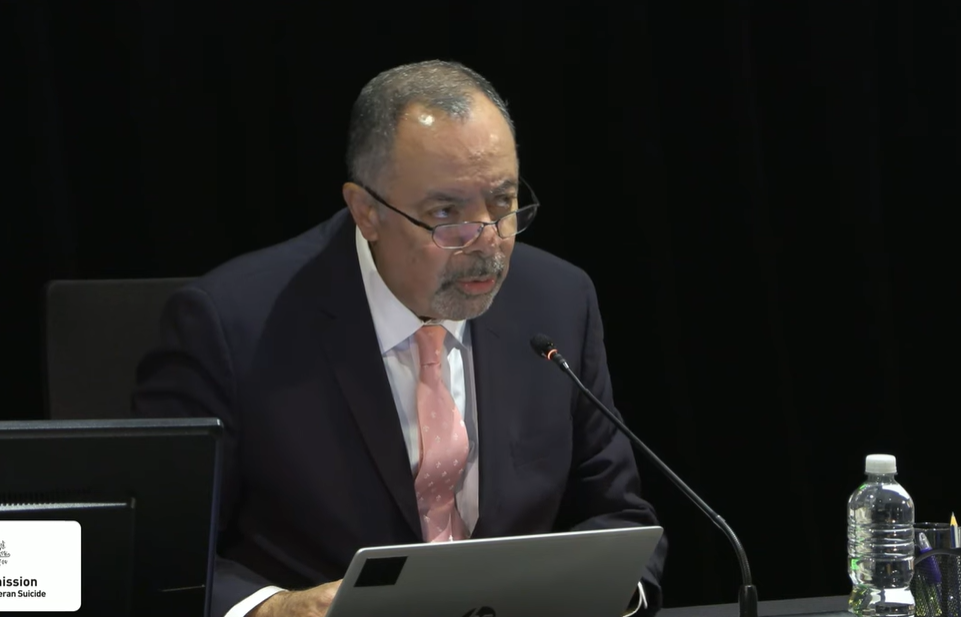Chief Commissioner Nick Kaldas makes his closing address for the Royal Commission into Defence and Veteran Suicide, 28 March 2024.
The head of the Royal Commission into Defence and Veteran Suicide has urged the federal government not to squander a once in a lifetime opportunity to fix the culture of the defence force.
Chief commissioner Nick Kaldas warned that opportunities for generational change are incredibly rare, and failure to act now will reinforce existing issues and hardship in the veteran community.
- In short: Chief commissioner Nick Kaldas has warned the government not to waste the opportunity it has to fix the defence force following the Royal Commission.
- The government will be wholly responsible for acting on the final report when it is published in September.
- What’s next? In September, the commission will also release its proposal for a permanent watchdog to monitor delivery of the recommendations, without which Mr Kaldas said nothing with change.
“Don’t expect any government to hold a second Royal Commission into these problems,” he told 4BC’s Peter Fegan in an interview on the Mornings show, June 27.
His comments reflect those of Senator Jacqui Lambie, who said Royal Commissions are a once in a lifetime opportunity, so it is crucial the findings are acted on.
“What she said was very significant,” Mr Kaldas said in the interview.
“Once we table our recommendations on the 9th of September, the government will obviously spend a little bit of time reading them and absorbing them, and then it’s up to the government of the day after that.
“We cannot do any more once we’ve handed in our report, it’ll be up to the government of the day, and I have to say, it will be up to the media and public to ensure the appropriate action is taken.”
To ensure accountability, the commission is currently creating a proposal for a permanent, independent oversight body to monitor the progress of the recommendations.
“There needs to be a small body that monitors this situation, acts independently, and reports publicly, so that the government and the public can know what’s going on,” Mr Kaldas said.
“If that’s not accepted, I feel we’ll quite simply keep doing what we’re doing, and the result will be the same.”
The delivery of the proposal was pushed back to September 7.
He warned that failure to act on the recommendations will reinforce the same harmful patterns.
“There were at least 57 inquiries and nearly 800 recommendations, and frankly the dial has not moved,” he said.
“There ought to be action once our recommendations are tabled, and in particular, the main recommendation [for an oversight body].”
Nasho Fair Go Queensland Organiser Graham Parlour said Mr Kaldas was spot on.
“I think all of these inquiries can only do good as long as it’s acted upon, but bureaucracy takes so long to react; it could be two or three years before anything happens,” he said.
The first major change is due to take effect from 1 July 2026 when the new, unified MRCA Act is launched.
“And you see, how many hundreds of blokes are going to be dead by that?” he said.
Mr Parlour has seen first hand how important federal inquiries can be in encouraging veterans to speak out.
“A lot of people are too proud to even admit they’ve got a problem, I was talking to an old digger today – he was in the ‘65 [National Service intake] – and he said he was that ashamed he never went anywhere near the RSL, a march, or had anything to do with the reunions,” he said.
“It’s only in the last 10 years that he’s been talked into going.”

